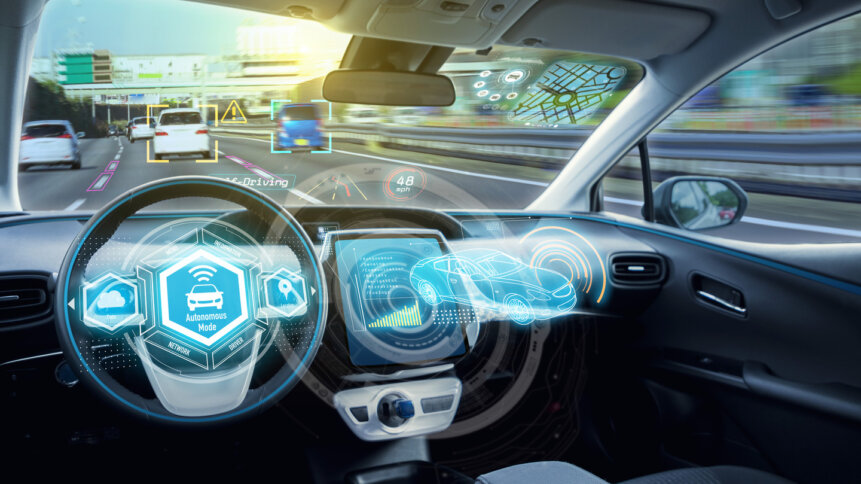Elektrobit and SUSE – powering the future of autonomous driving

|
Getting your Trinity Audio player ready...
|
Autonomous cars, and other transport features that rely on autonomy, mean that vehicles, and the manufacturers of the IIoT devices inside them, are increasingly reliant on software. In fact, by 2030, a full 30% of a vehicle’s value is set to come from its software.
Elektrobit is the name behind the code in a billion devices, smoothing out autonomous processes in more than a hundred million vehicles. It’s a perfect example of an organization that has to focus on the software that’s running on automotive hardware.
Elektrobit has cataloged four major issues it faces with software in, for example, autonomous cars:
- The scale of coding: today’s connected cars run on a million lines of code plus, so both adding functionality and debugging code is extremely complex.
- Interoperability: software needs to work with varying manufacturer requirements.
- Safety: like interoperability, software needs to be compliant with dozens of governments’ safety regulations.
- Cybersecurity: there are issues around the up- and download of updates, traffic information, diagnostic details, and other necessary data movements that each represent potential attack vectors.
Alexander Kocher, President of Automotive Business Segment and Managing Director for Elektrobit, explained why these criteria are best met by open source. “A transparent system allows faster detection of issues or vulnerabilities, and thus more control,” he said.
The power of open source in autonomous cars
Using open source components means that Elektrobit doesn’t have to start coding solutions from scratch, but can instead build on pre-existing elements. Elektrobit has chosen SUSE as its ideal Linux and open source provider, considering it both flexible, reliable, and secure enough for the complex demands of the job.
SUSE was the first enterprise distribution to go to market, launching in 1992 in Germany. Inspired by the country’s history in vehicle manufacture (Audi, Mercedes, Volkswagen, BMW), SUSE has been involved in the automotive industry’s drive to digitization since 2008. Currently, 12 of the largest 15 vehicle vendors in the world run SUSE solutions. It’s a small step for technology to go from today’s driver aids to fully-autonomous cars.
SUSE is rapidly advancing those specific technologies suited to fast and agile development, some of which we have covered, like Rancher (microservices) and Harvester (HCI). Commercially and developmentally, SUSE is pushing hard in containerization and cloud-native technologies, edge computing, hardened microservices, the simple implementation of complex code, and easily configurable tooling. So, given Elektrobit’s four areas of focus, SUSE was a logical, local choice.
Safety Linux
Elektrobit was also interested in SUSE’s approach, a philosophy based on the open source ethos that eliminates vendor lock-in, and one that chimed with its own long-standing use of open source technologies. Options will remain open, so costs remain low, and predictably low in the long term.
SUSE’s typical 15-year product lifecycle support means that issues like updates and patch management, which aren’t the focus of companies like Elektrobit, can continue, while vendors and innovators can focus on developing their products.
There has also been a commitment from key industry players to develop and create Safety Linux, a variant especially developed for the automotive technology sector. That commitment arose from the need for oversight and assurances on the complex systems and processes involved in making autonomous cars and fully-automated driving a reality.
Safety Linux is designed for manufacturers and industrial organizations committed to advancing autonomous driving through edge computing systems and networks. If anyone needed a definition of edge computing (and a description of its challenges), a self-driving vehicle has to be the go-to example. When a ton of metal is traveling at 70kmph, the stakes are high and there’s no way of relying on a cloud service to take fast decisions with limitless computing power.
Predictability wins
The Safety Linux distribution’s security is designed to be unmatched and will be built with all the benefits of open source development, including existing work on hardened kernels. Because it will support a variety of code languages, it will maintain interoperability, respect the needs of security, and provide a flexibility that can adapt to local jurisdictions.
Elektrobit’s clients will benefit from the increased predictability and reliability of time-sensitive applications, alongside high availability and reduced latency.
With no margin for error in autonomous driving, predictability is paramount. SUSE is committed to helping Elektrobit develop Safety Linux to ensure that there are no reservations when it comes to adopting driving automation – or at least none that stem from the core software.
As we’ve discussed on these pages, legal and practical challenges are yet to be resolved in the autonomous vehicle sector, with several vendors simply throwing in the towel in recent months. SUSE and Elektrobit have shown commitment to their beliefs in open source, where so often, collective brain power can crack the hardest problems with benefits for everyone.











